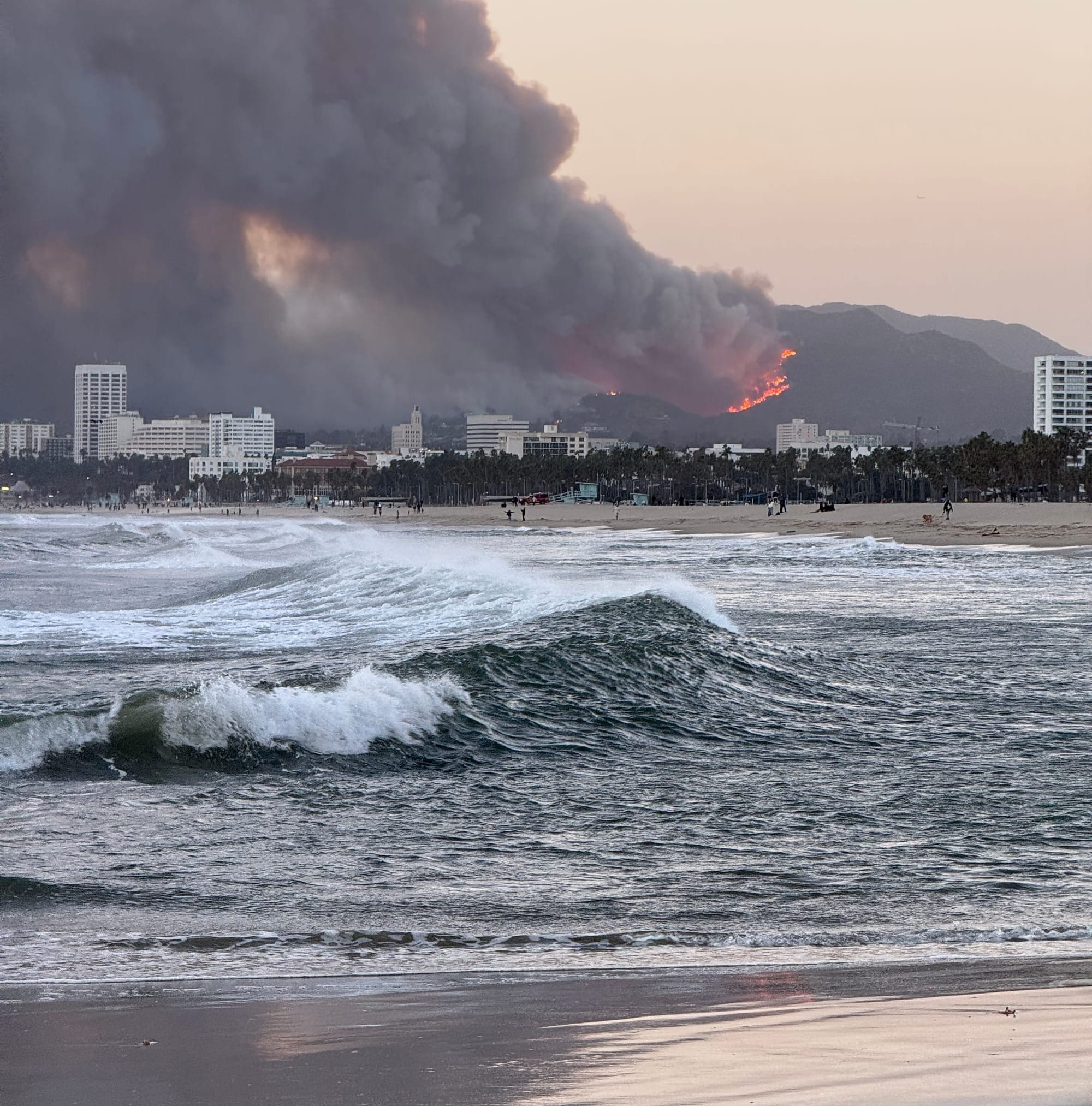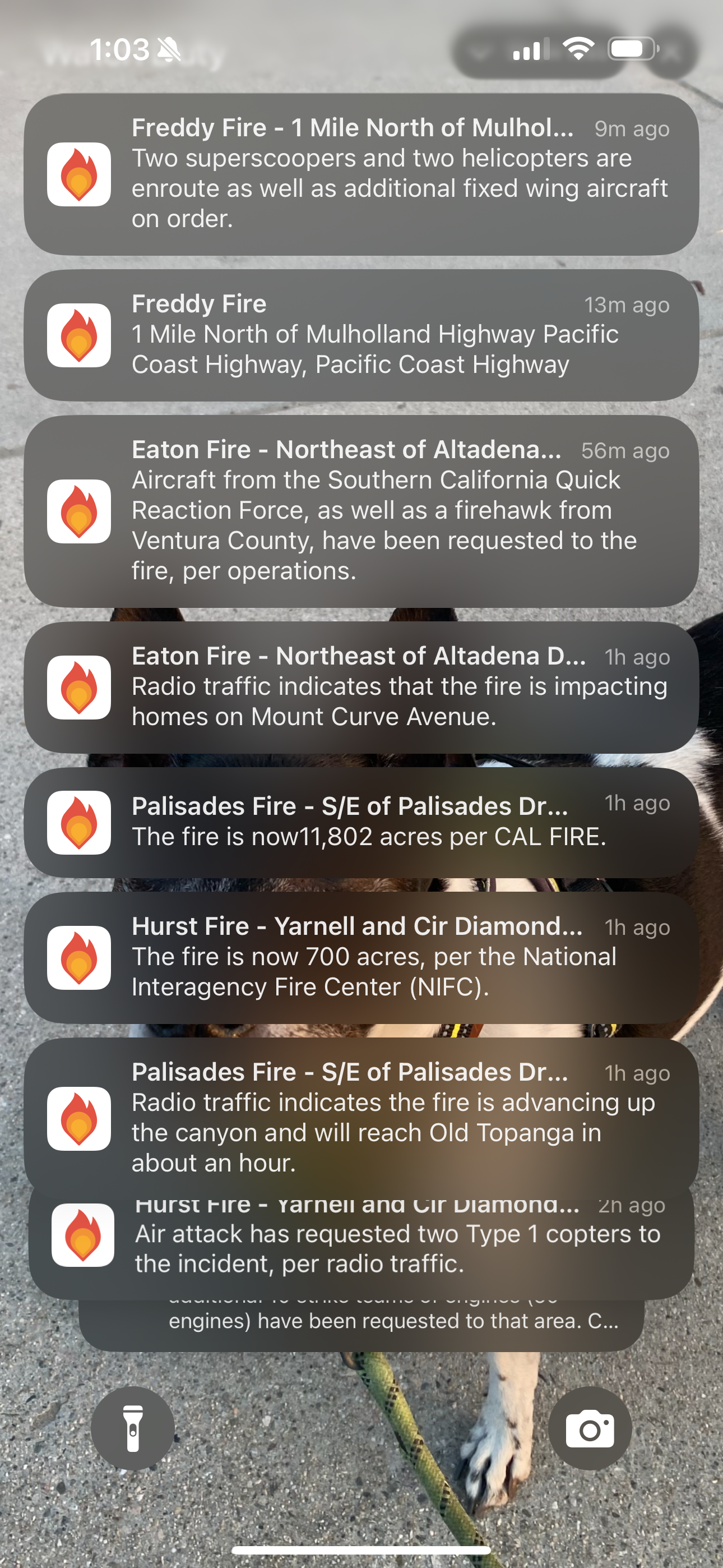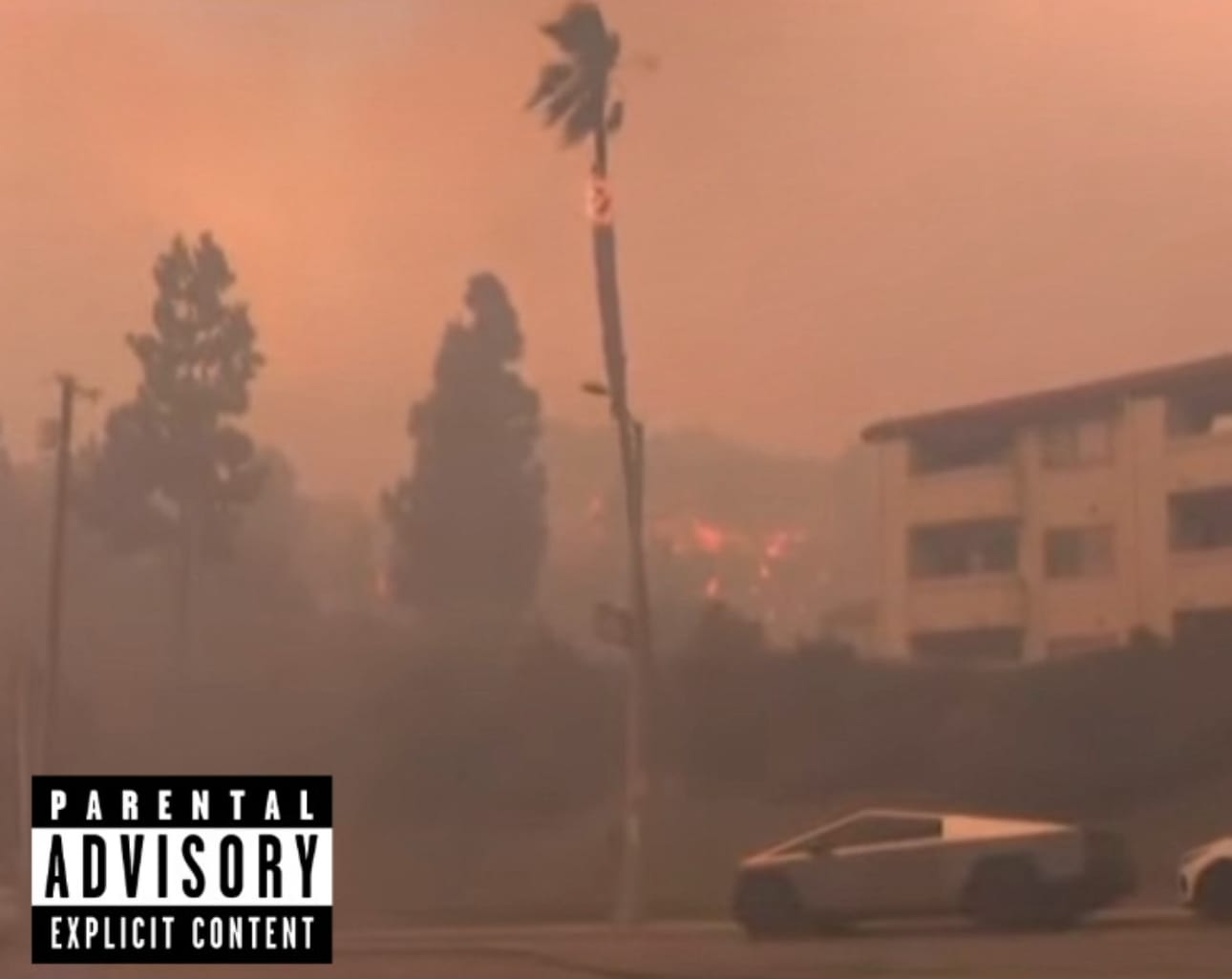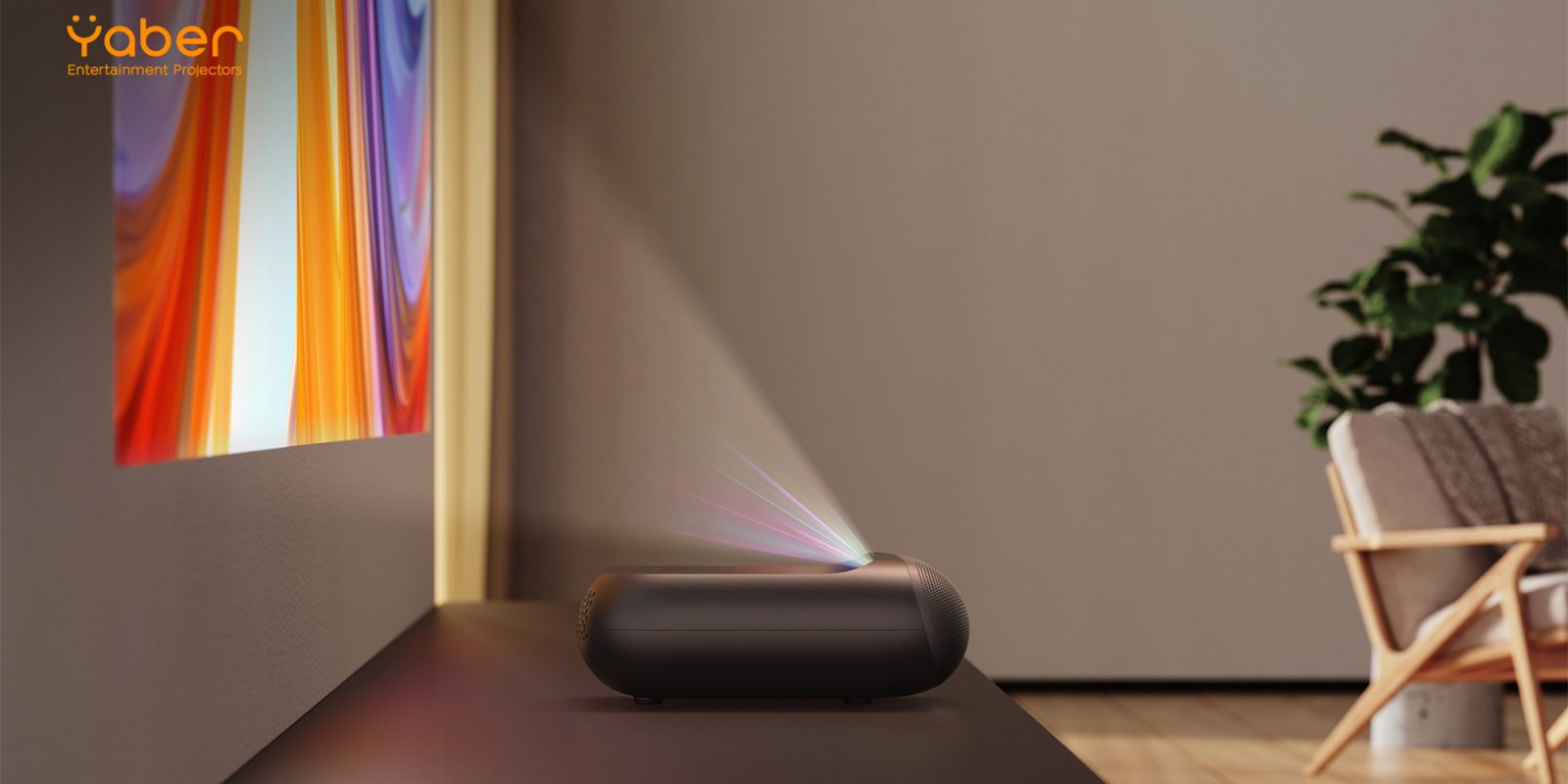‘We’re Fine’: Lying to Ourselves About a Climate Disaster

In 2020, after walking by refrigerated trailers full of the bodies of people who died during the first wave of the COVID-19 pandemic one too many times, my fiancé and I decided that it would maybe be a good idea to get out of New York City for a while. Together with our dog, we spent months driving across the country and eventually made it to Los Angeles, where we intended to stay for two weeks. We arrived just in time for the worst COVID spike since the one we had just experienced in New York. It turned out we couldn’t and didn’t want to leave. Our two week stay has become five years.
While debating whether we were going to move to Los Angeles full time, my partner and I joked that we had to choose between the “fire coast” and the “water coast.” New York City had been getting pummeled by a series of tropical storms and downpours, and vast swaths of California were fighting some of the most devastating wildfires it had ever seen. We settled on the fire coast, mostly to try something new.
It turns out this was a false choice. Since we’ve moved to Los Angeles, we have experienced the heaviest rains in the city’s recorded history, the first hurricane to ever trigger a tropical storm warning in Los Angeles, and, of course, the fires. New York City, meanwhile, has had both tropical storms and this summer fought an out-of-control brushfire in Prospect Park after a record drought. Both coasts are the fire coast, and the water coast.
We have been very lucky, and very privileged. Our apartment is in Venice Beach, which is probably not going to burn down. This time, we will not lose our lives, our things, our memories. We had the money and the ability to evacuate from Los Angeles on Wednesday morning after it became clear to us that we should not stay. What is happening is a massive tragedy for the city of Los Angeles, the families who have lost their homes, businesses and schools.
I am writing this to try to understand my place in a truly horrifying event, and to try to understand how we are all supposed to process the ongoing slow- and fast-moving climate change-fueled disasters that we have all experienced, are experiencing, and will definitely experience in the future. My group chats and Instagram stories are full of my friends saying that they are fine, followed by stories and messages explaining that actually, they are not fine. Stories that start with “we’re safe, thank you for asking” have almost uniformly been followed with “circumstances have changed, we have evacuated Los Angeles.” Almost all of my friends in the city have now left their homes to go somewhere safer; some people I know have lost their homes.
I knew when I moved to Los Angeles that we would to some extent experience fires and earthquakes. I live in a “tsunami hazard zone.” I also know that there is no place that is safe from climate change and climate-fueled disaster, as we saw last year when parts of North Carolina that were considered to be “safer” from climate change were devastated by Hurricane Helene.
We are living in The Cool Zone, and, while I love my life, am very lucky, and have been less directly affected by COVID, political violence, war, and natural disasters than many people, I am starting to understand that maybe this is all taking a toll. Firefighters and people who have lost their homes are experiencing true hell. What I am experiencing is something more like the constant mundanity of dystopia that surrounds the direct horror but is decidedly also bad.
I knew it would be windy earlier this week because I check the surf forecast every day on an app called Surfline, which has cameras and weather monitoring up and down nearly every coast in the world. The Santa Ana winds—a powerful wind phenomenon I learned about only after moving to California—would be offshore, meaning they would blow from the land out to sea. This is somewhat rare in Los Angeles and also makes for very good, barreling waves. I was excited.
I had a busy day Tuesday and learned about the fire because the Surfline cameras near the fire were down. In fact, you can see what it looked like as the fires overtook the camera at Sunset Point here:
The camera livestream was replaced with a note saying “this camera is offline due to infrastructure issues caused by local wildfires.” The surf forecast did not mention anything about a fire.
I walked out to the beach and could see the mountains on fire, the smoke plumes blowing both out to sea and right over me. The ocean was indeed firing—meaning the waves were good—and lots of people were surfing. A few people were milling around the beach taking photos and videos of the fire like I was. By the time the sun started setting, there were huge crowds of people watching the fire. It was around this time that I realized I was having trouble breathing, my eyes were watering, and my throat was scratchy. My family locked ourselves into our bedroom with an air purifier running. Last week, we realized that we desperately needed to replace the filter, but we did not. A friend told us the air was better near them, so we went to their house for dinner.
While we were having dinner, the size of the fire doubled, and a second one broke out. Our phones blared emergency alerts. We downloaded Watch Duty, which is a nonprofit wildfire monitoring app. Most of the wildfire-monitoring cameras in the Pacific Palisades had been knocked offline; the ones in Santa Monica pointing towards the Palisades showed a raging fire.

Every few minutes the app sent us push notifications that the fire was rapidly expanding, that firefighters were overwhelmed, that evacuation orders had expanded and were beginning to creep toward our neighborhood. I opened Instagram and learned that Malibu’s Reel Inn, one of our favorite restaurants, had burned to the ground.
Apple Intelligence began summarizing all of the notifications I was getting from my various apps. “Multiple wildfires in Los Angeles, causing destruction and injuries,” from the neighborhood watch app Citizen, which I have only because of an article I did about the last time there was a fire in Pacific Palisades. Apple Intelligence’s summary of a group chat I’m in: “Saddened by situation; Instagram shared.” From a friend: "Wants to chat about existential questions." A summary from the LA Times: “Over 1,000 structures burned in LA Count wildfires; firefighter were overwhelmed.” From Nextdoor: “Restaurants destroyed.”


Earlier on Tuesday, I texted my mom “yes we are fine, it is very far away from us. It is many miles from us. We have an air purifier. It’s fine.” I began to tell people who asked that the problem for us was "just" the oppressive smoke, and the fact that we could not breathe. By the time we were going to bed, it became increasingly clear that it was not necessarily fine, and that it might be best if we left. I opened Bluesky and saw an image of a Cybertruck sitting in front of a burnt out mansion. A few posts later, I saw the same image but a Parental Advisory sticker had been photoshopped onto it. I clicked over to X and saw that people were spamming AI generated images of the fire.

We began wondering if we should drive toward cleaner air. We went home and tried to sleep. I woke up every hour because I was having trouble breathing. As the sun was supposed to be rising in the morning, it became clear that it was being hidden by thick clouds of smoke.
Within minutes of waking up, we knew that we should leave. That we would be leaving. I opened Airbnb and booked something. We do not have a “Go Bag,” but we did have time to pack. I aimlessly wandered around my apartment throwing things into bags and boxes, packing things that I did not need and leaving things that I should have brought. In the closet, I pushed aside our boxes of COVID tests to get to our box of N-95 masks. I packed a whole microphone rig because I need to record a podcast Friday.
I emailed the 404 Media customers who bought merch and told them it would be delayed because I had to leave my home and cannot mail them. I canceled meetings and calls with sources who I wanted to talk to.
Our next-door neighbor texted us, saying that she would actually be able to make it to a meeting next week with our landlord with a shared beef we’re having with them. Originally she thought she would have to work during the time the meeting was scheduled. She works at a school in the Palisades. Her school burned down. So had her sister’s house. I saw my neighbor right before we left. I told her I would be back on Friday. I had a flashback to my last day in the VICE office in March 2020, when they sent us home for COVID. I told everyone I would see them in a week or two. Some of those people I never saw again.

A friend texted me to tell me that the place we had been on a beautiful hike a few weeks ago was on fire: “sad and glad we went,” he said. A friend in Richmond, Virginia texted to ask if I was OK. I told him yes but that it was very scary. I asked him how he was doing. He responded, “We had a bad ice storm this week and that caused a power outage at water treatment that then caused server crashes and electrical equipment to get flooded. The whole city has been without water since Monday.” He told me he was supposed to come to Los Angeles for work this weekend. He was canceling his flight.
A group chat asked me if I was OK. I told them that I did not want to be dramatic but that we were having a hard time but were ultimately safe. I explained some of what we had been doing and why. The chat responded saying that “it’s insane how you start this by saying it sounds more dramatic than it is, only to then describe multiple horrors. I am mostly just glad you are safe.”
We got in the car. We started driving. I watched a driverless Waymo navigate streets in which the traffic lights were out because the power was out. My fiancé took two work meetings on the road, tethered to her phone, our dog sitting on her lap. We stopped at a fast food drive through.
Once we were out of Los Angeles, I stopped at a Best Buy to get an air purifier. On my phone, I searched the reviews for the one they had on sale. I picked one out. The employee tried to sell me an extended warranty plan. I said no thank you, got back in the car, and kept driving away from the fire. I do not know when we will be able to go back.

